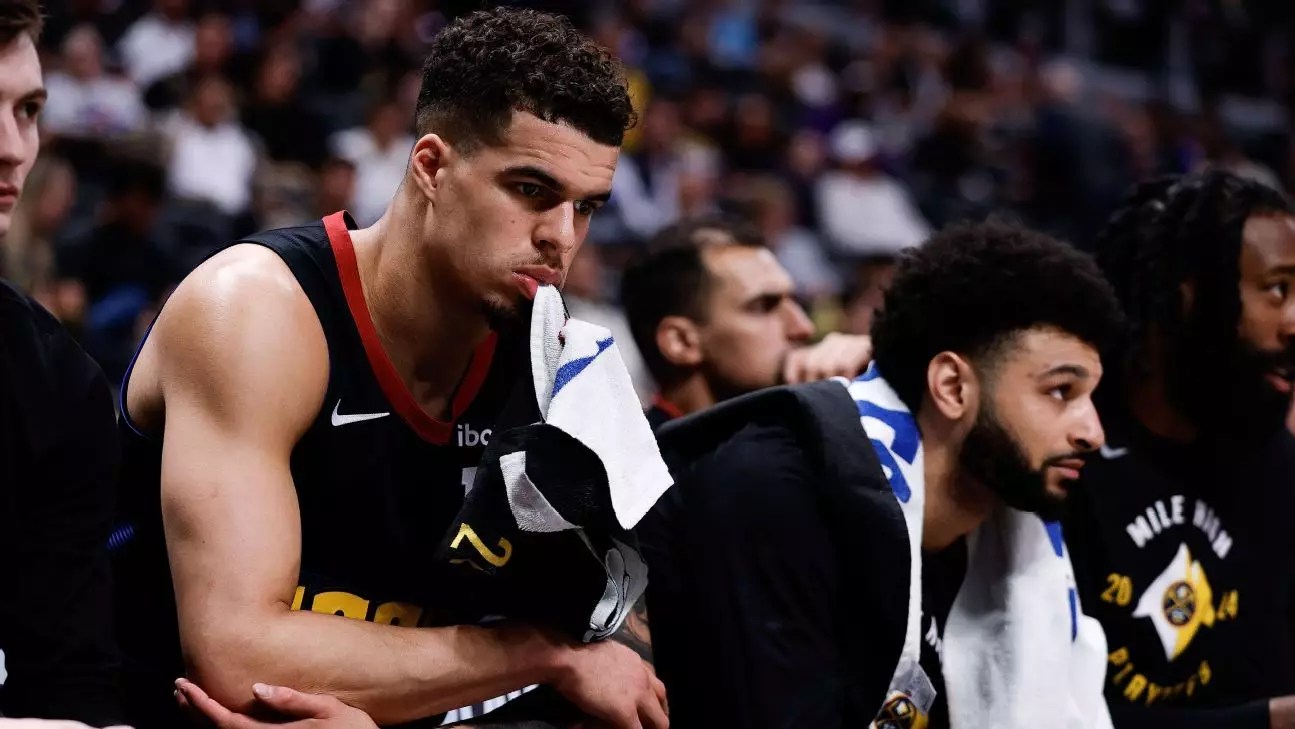In recent years, the rise of legal and illegal sports betting has transformed the landscape of professional athletics. While many tout it as a harmless form of entertainment, a startling truth emerges: the core enjoyment and integrity of sports are under serious threat. Athletes, fans, and governing bodies must confront the reality that the appeal of the game is increasingly overshadowed by monetary incentives tied to betting. When players like Michael Porter Jr. cite that the thrill of sports is now primarily about profits rather than competition, it signals a disturbing shift. The authenticity of athletic performances, once driven by passion and pride, is now vulnerable to external financial pressures, including illegal schemes and match-fixing.
The Dangerous Ripple Effect of Gambling on Athletes and Their Communities
The Porter family’s recent turmoil underscores the destructive impact of gambling on individual athletes and their networks. Jontay Porter’s infamous ban from the NBA in 2024, following his admission to manipulating his game to benefit gamblers, exemplifies how deeply gambling-related corruption can infiltrate professional sports. His confession reveals a heartbreaking truth: some athletes from impoverished backgrounds are exploited or tempted into compromising their integrity to pay off debts or support their loved ones. This dynamic fuels a toxic cycle where desperation diminishes ethical boundaries, tarnishing the very fabric of fair play. Michael Porter Jr.’s insights highlight a systemic vulnerability—athletes are often caught between lucrative yet risky opportunities and safeguarding their reputations.
The Perils of a Gambling-Driven Culture
As sports betting becomes more widespread, a disturbing culture of manipulation and risk-taking emerges. Prop bets, especially those involving player statistics or game outcomes, create fertile ground for corruption. When athletes are pressured—whether overtly or subtly—to influence game results, the risk extends beyond individual careers. Porter articulates a compelling concern: the proliferation of online betting platforms makes players susceptible to threats, harassment, or even physical violence. Such a hostile environment reveals a dire need for regulation and oversight. Restricting betting to trusted, in-person venues such as Las Vegas might be a step toward safeguarding athletes and restoring some semblance of integrity to the sport. Without decisive action, the sport risks descending into chaos, where the true meaning of competition is sacrificed on the altar of greed.
A Call for Reform and Resilience
Ultimately, the conversation surrounding sports betting should serve as a wake-up call for leagues, regulators, and fans. A more disciplined approach—focused on protecting players and preserving the integrity of competition—is paramount. Athletes like Michael Porter Jr. acknowledge the emotional and physical toll gambling takes, revealing an urgent need for comprehensive education, support, and strict enforcement of rules. Fake narratives about “easy money” must be challenged, as the fallout from unchecked betting schemes can devastate lives and tarnish beloved sports. Recognizing the pervasive influence of gambling, society must prioritize ethical standards over short-term financial gains, ensuring that the spirit of sport endures in its rightful essence—competition, skill, and heartfelt passion.


Leave a Reply